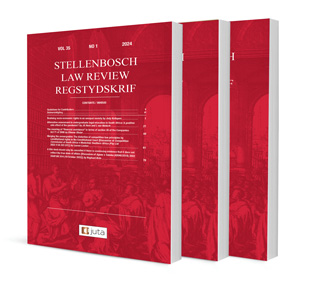Remote commissioning—Signing an affidavit in the “virtual presence” of the commissioner of oaths

Remote commissioning—Signing an affidavit in the “virtual presence” of the commissioner of oaths
Author: Ciresh Singh
ISSN: 1996-2193
Affiliations: LLB LLM PhD
Source: Stellenbosch Law Review, Volume 35 Issue 3, 2024, p. 221-237
https://doi.org/10.47348/SLR/2024/i3a1
Abstract
Advances in technology since the turn of the millennium have resulted in technology being infused into all spheres of life. Most, if not all, human functions can now be performed with the use of technology. The law has not been immune to the influence of technology and legislation has been implemented, both abroad and domestically, to encourage the use of technology in law and commerce. Within the South African context, the use of technology was significantly accelerated during the Covid-19 pandemic. Despite the pandemic’s lockdown restrictions, technology allowed courts to conduct trials and other court applications virtually by making use of video conferencing. Technology also allowed contracts and agreements to be signed electronically, and notices and applications to be delivered or served via the use of electronic delivery mechanisms such as e-mail. Currently, there is some uncertainty as to whether a court affidavit can be signed and commissioned virtually. Section 10 of the Justices of the Peace and Commissioners of Oaths Act 16 of 1963, read with regulation 3(1) of the Regulations Governing the Administration of an Oath or Affirmation of 1972, provides that an affidavit must be signed in the presence of a Commissioner of Oaths. While some courts have adopted a broad interpretation of section 10, and allowed affidavits to be signed and commissioned remotely in the “virtual presence” of the Commissioner of Oaths, other courts have not taken such a modern approach. Given that the Justices of the Peace and Commissioners of Oaths Act was promulgated over 60 years ago, the time may have come to amend it to allow for the remote signing and commissioning of court affidavits.